History
Anthony Rota
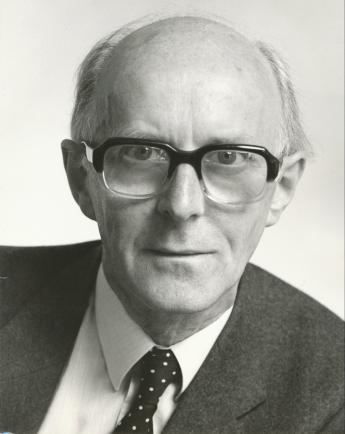
Le Prix Triennal de Bibliographie fonde par La Ligue Internationale de la Librairie Ancienne
Dans le monde du livre ancien et de la recherche bibliographique, deux personnages sont, jours après jours, confrontes à des problèmes de recherche, d'identification et d'évaluation d'oeuvres anciennes, précieuses ou non: Le Conservateur de bibliothèque et le libraire antiquaire.
Le second, tout particulièrement, car de sa science et de ses connaissances dépendent son commerce et sa réputation.
Chaque jour il se trouve devant des problèmes d'identification qui ne peuvent plus se résoudre selon les méthodes empiriques et improvisées, souvent particulièrement affectionnées par nos prédécesseurs, du XIXe' siècle. II faut dire qu'à cette époque nous assistions aux débuts de la bibliographie, et que tout était à faire.
Aussi, depuis les Brunet, Quérard, Jacob, Cohen, Vicaire, Hain et bien d'autres, chaque nouveau chercheur a apporté sa contribution è la science bibliographique, générale ou spécialisée, mais malgré tous les apports, toutes ces oeuvres de valeur qui furent apportées aux cours des ans, nous nous trouvons toujours, recherchant un reseignement introuvable, introuvable pour une raison fort simple: la bibliographie qui devrait le contenir étant encore à faire.
Ce fut en septembre 1961, durant le Congrès international de la Ligue organisé cette année à Paris, que l'Assemblée Générale eut a examiner une proposition introduite par le »Nederlandsche Vereeniging van Antiquaren«. Cette proposition concernait la fondation d'un Prix annuel ou triennal, d'un montant de $ 750.00 destiné à encourager et à perfectionner la recherche bibliographique ou d'histoire du livre. Cette proposition fut acceptée avec enthousiasme, et, le Comite de la Ligue fut charge de l'organiser le plus rapidement possible et d'en fixer les règlements et statuts.
Je venais d'ètre élu à la Présidence, succédant au regrette Richard Wormser. La Ligue connaissait à cette époque de nombreuses difficultés et ce n'était certe pas le travail qui manquait aux membres de ce Comité. Un Comité restreint se réunissait à peu près tous les deux mois et de cette facon le travail pouvait avancer. Pour ce qui concernait ce travail supplémentaire: «Prix de Bibliographie», tout était à construire, nous avions à organiser une nouvelle activité de la Ligue.
Fort heureusement, ayant dans ma jeunesse organisé un Prix Littéraire annuel destiné à l'encouragement de la littérature de langue francaise parmi les écrivains originaires du Zaire (à cette époque Congo Belge), j'avais une certaine expérience de ces questions et la possibilité d'éviter quelques erreurs et de nombreux malentendus.
Aussi, après la reunion générale du Comité de la Ligue tenue à Florence en mai 1962, notre projet de règlement de ce qui serait un prix triennal était prêt, l'organisation en avait été etudiée à fond ainsi que la composition d'un Jury. Il nout fallait en effet un Jury dont la capacité des membres fut universellement reconnue de facon à ne pouvoir prêter le flanc à aucune critique dans les décisions qu'il aurait à prendre.
Je présentais donc notre projet à l'Assemblée générale de la Ligue, lors du Congres international de Bâle, en septembre 1962, et celui-ci fut adopte à l'unanimité.
Dans les mois qui suivirent, une publicité mondiale fut donnée à notre organisation; chaque Association membre de la Ligue, annoncant le Prix Triennal dans son propre pays à toutes les Bibliothèques, Institutions, Comités de recherches bibliographiques, maisons d'editions etc.
Entretemps le Jury avait été composé et se présentait comme suit:
Prof. Dr. de la Fontaine-Verwey. Universiteitsbiblioteek, Amsterdam
Mr. Howard Nixon. British Museum, London
Mr. Pierre Lelièvre, Inspecteur général des bibliothèques de France. Paris
Mr. A. Frauendorfer, Libraire, membre délégué du l'unanimité
Comité de la Ligue.
Mr. Georges A. Deny. Président de la Ligue, et Président du Jury
Puis les années passèrent, les hommes aussi; et, dans ce Jury qui toujours travaillait avec la même ardeur, Monsieur Pierre Lelièvre, promu recteur de l'Université de Dakar, fut remplace par le Dr. Kurt Köster, Generaldirektor de la Deutsche Bibliothek, Frankfurt. Puis Mr. Howard Nixon, après 9 années de collaboration demanda à être remplacé, et le fut par Mr. R. J. Roberts, actuellement Keeper of Printed Books, Bodleian Library, Oxford, et Secrétaire de la Bibliographical Society.
Parmi les délégués du Comité de la Ligue au Jury, nous retrouverons Messieurs Antoine Grandmaison, Dudley Massey, Fernand de Nobele, Dr. Frieder Kocher-Benzing, Stanley Crowe, qui se succédèrent selon le règlement.
Des oeuvres bibliographiques de tout premier plan furent primées; certaines étaient l'oeuvre d'une vie, le fruit du travail de recherches de vingt ou trente années. Ce fut un honneur et un privilège pour la Ligue Internationale de pouvoir concourir à leur publicité dans le monde de la recherche du livre.
Voici la liste des oeuvres primées au cours de ces 15 années:
Bibliographie des impressions espagnoles des Pays-Bas meridionaux, par Mr. Jean Peeters-Fontainas (Belgique). Edit: B. De Graaf, Nieuwkoop, 1965. 2 vol in-4°.
The fifteen-century printing types of the low countries, par Wytze & Lotte Hellinga. (Holland). Amsterdam, Hertzberger, 1966. 2 vol. in-folio.
Atlantes Neerlandici, par le Dr. Jr. C. Koeman (Holland). Amsterdam, Theatrum Orbis Terrarum, 1967-1970. 5 vo. in-folio.
Die zoologische Buchillustration. Ihre Bibliographie und Geschichte, par le Dr. Claus Nissen (Deutschland). Stuttgart, Hiersemann, 1969/1970 2 vol. in-4°.
Benjamin Franklin's Philadelphia printing,1728-1786. A descriptive bibliography, by William C. Miller (America). Philadelphia, The American Philosophical Society, 1974, in-4°.
Nous sommes particulièrement heureux de pouvoir féliciter ici William C. Miller, qui a consacré sa vie à ce travail de recherche et qui l'a mené à bien en nous présentant cette bibliographie d'une exactitude scrupuleuse et d'une parfaite clarté permettant la recherche des détails tant historiques que techniques dans l'impression des oeuvres décrites.
En ce cinquième Prix Triennal, d'autres oeuvres de grande valeur étaient présentées et nous pouvons assurer William C. Miller, que comme pour ses prédécesseurs depuis la fondation du Prix, le travail du Jury se révéla difficile mais se termina, selon la coutume, par un vote à l'unanimite.
Puisse ce Prix Triennal se perpétuer longtemps encore, nous apportant ces nouvelles bibliographies dont nous avons tant besoin, et nous permettant de faire connaître au monde de nouvelles générations de chercheurs.
The article was published in Aus dem Antiquariat 9, 1977, and is presented here by permission of the editor.
The International League
It happened that in 1971 I was the president of the Antiquarian Booksellers Association when it was Great Britain's turn to act as host to the biennial congress of the International League of Antiquarian Booksellers, the umbrella organisation for national associations of antiquarian booksellers across the world. It was becoming the custom that the congress be followed by an international antiquarian book fair attracting perhaps as many as 200 exhibitors. The congress itself was the responsibility of the League's committee but the physical arrangements, the social programme and the running of the fair were all down to the host association.
Planning started in 1970, when I was vice-president to bluff, genial George Porter, of the Cambridge firm of Galloway and Porter. We set up two committees, one under Tom Crowe (whose Norwich bookshop was a treasure-house), to raise funds and organise the social programme, and the other under Martin Hamlyn, of Peter Murray-Hill Ltd., to be responsible for the fair. I took the chair of a third committee, on which Tom and Martin sat, and we three were responsible for liaison between the other committees.
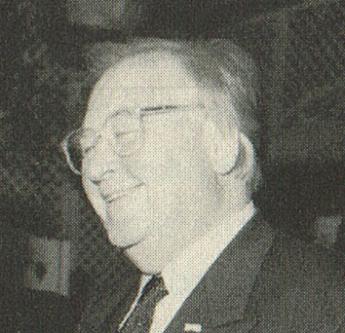
Dates having been agreed with the League, we set to work in earnest, Tom proving adept at twisting people's arms and getting large donations for our hospitality fund. We then persuaded the Government to give a reception for our foreign guests at Lancaster House. There was to be an opening reception at a West End hotel and a farewell banquet at the Savoy. In today's politically correct climate it is customary for congresses to have an outing for 'spouses' but in 1971 we unashamedly organised a fashion show for wives.
For our principal cultural event we were indebted to Diana Parikian, dealer in emblem books among other things, and to her husband Manoug, the distinguished violinist, who was a collector of Armenian literature. The Parikians persuaded their friends, Sir Ralph and Lady Verney, with the permission of the National Trust, to allow us to use Claydon, their lovely house in Buckinghamshire, once the home of Florence Nightingale, to stage a concert. Mary Verney herself would play the harpsichord, and no less a diva than Elizabeth Schwarzkopf would sing for us. When Madame Schwarzkopf's agent submitted the programme, it seemed to me to lean too heavily on Hugo Wolf for the simple tastes of our audience and I asked, very diffidently, if the programme could be lightened a little and also whether, as a particular kindness to me, 'Plaisirs d'Amour' could be included (my friends Bob and Gay Elwell had had the Schwarzkopf recording of this song played at their wedding). Back came a feisty reply from La Schwarzkopf: if that was the sort of audience we were she would cheerfully sing Danny Boy!
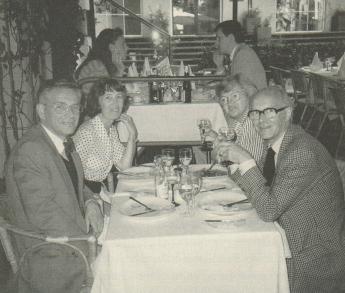
When the time came the evening was a huge success. As we drew up at Claydon champagne was served on the terrace. One of the coaches lost the way, which meant that several more cases of champagne were served than had been budgeted for, but who was counting? After a delicious candle-lit supper Mary Verney played for us and Schwarzkopf gave us an hour of sheer magic.
The other high point of the week was to be a trip to Chatsworth by private train. In negotiating the hire of this train we asked a manager from British Rail if we could have a bar provided. 'Yes' he said, 'provided you guarantee to spend a minimum of £100 on drink'. 'Good gracious', I replied, 'my committee alone will spend that!' A bad experience I had in a British Rail buffet car around this time caused me to write to the private hire department stressing what bad publicity it would be for British Rail if our 200 visitors from a dozen nations suffered a similar misadventure. Our contact, the manager, telephoned to say 'I don't know what you said in your letter but I have been told to come with you on the train in case there are any problems. You will have the footplate staff and the dining car staff from the Royal Train, with an inspector riding in the cab so that he can order the signalman to overrule red signals and give us priority. You will also have a separate carriage for your committee and one compartment of it will be filled with replacement light bulbs, clean towels and spare rolls of lavatory paper.'
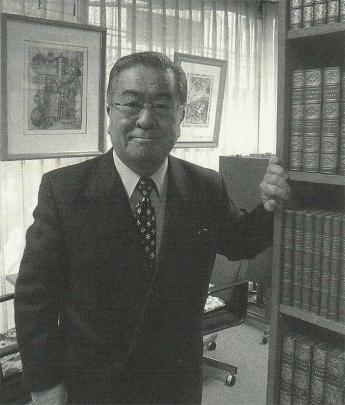
In the event all went very well indeed. Coffee and drinks were served on the journey north from St Pancras. At Chesterfield we left the train and went by coach through the Peak District to the Duke of Devonshire's estate. There we had lunch before spending the afternoon in Chatsworth's magnificently landscaped grounds. When the house closed to the general public we went in to see a special display in the library. After that we had a picnic tea on the lawns before making our way back to Chesterfield and the waiting train. To the surprise of our French visitors, British Rail served us a splendid meal on the way south and to the astonishment of the Germans, we reached St Pancras exactly on time.
Before these events took place, but when we had finished drawing up the detailed plans, I sent a copy of the programme, together with a layout of how it would look in print, to the president of the League, Fernand de Nobele in Paris. 'How is this?' I asked. Back came the programme with not a word of enthusiasm or praise, merely a note asking me to make the League's logo larger.
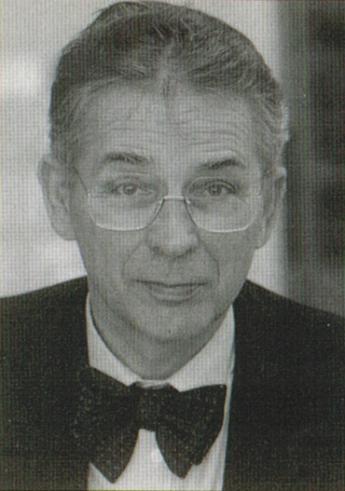
Looking Back
This is a book of memoirs, not a definitive biography. It is therefore selective. There are aspects of subjects that I have barely touched on and others that I have not mentioned at all, chiefly for fear of straining the reader's patience too far. There are many tales I have not told. I have barely touched on my involvement in politics for example and have said relatively little about working for the Antiquarian Booksellers Association and the International League of Antiquarian Booksellers. I joined the ABA committee in 1959 (when Harry Pratley was President) and as a Past-President still have the right to attend committee meetings. Every now and then I turn up and surprise the present incumbents. Though I no longer have a vote the rules don't stop me speaking and I usually interject a remark or two. Today in both the ABA and the ILAB it is harder to find people willing and able to take on the large amounts of voluntary work that are involved. In an age of increasing professionalism, with government and bureaucracy ever extending their grip the workload of the trade associations has certainly increased – and that at a time when for the book trade 'Life is real! Life is Earnest’, as Longfellow has it. This is a shame. I for my part always found much pleasure in committee work and both at home and abroad it has brought me great friendships.
Working for the League had a particular savour. Its remit was to promote the cause of rare books and the highest ethical standards in dealing with them, among the thirty nations or more whose antiquarian book trade associations have banded together for the common good. The League's business is conducted by a seven-man committee under the chairmanship of the President. I served as Treasurer for three years during the presidency of the Danish bookseller Hans Bagger, one of the finest and most selfless men I have ever had the privilege to meet. I succeeded him in the chair in 1988 and served till 1991. My committee consisted of a Dutchman (Anton Gerits), a German (Konrad Meuschel), a Frenchman (Louis Loeb-Laroque), an American (Lou Weinstein), a Japanese (Mitsou Nitta of the Yushodo Company), and an Italian (Vittorio Soave). We met for a protracted session every six months. We managed without interpreters and the resulting latter-day Tower of Babel was really rather fun. We worked hard and we played hard, meeting in different locations such as Stuttgart, Paris, Amsterdam, London, Tokyo and Turin — either where one of us had his rare book business, or where there was an important Book Fair being held. Any disagreements of the day were washed away at night by good wine at dinner. Often the local booksellers acted as our hosts. I remember with particular pleasure a lunch that Vittorio Soave gave on the terrace of his rowing club on the River Po at Turin. I remember too the dedication and loyalty to the League and to myself shown by my admirable vice-president, Anton Gerits. Needing once to get the committee's reaction between meetings to a question that had arisen, I sent faxes to the various points of the compass. I hope Anton will forgive me if I paraphrase his reply:
‘I have returned from holiday to find your fax. My desk is piled high with papers demanding my attention, but I answer you first. On the question you put my opinion is ... (there followed a brief but cogent argument): If you should reach a different conclusion, Mr President, then your opinion is my opinion also.'
These chapters were published in Anthony Rota’s memoirs “Books in the Blood” (Private Libraries Association and Oak Knoll Press, 2002). They are presented here with the kind permission of Julian Rota. Thank you very much.
Bertram Rota Ltd.
